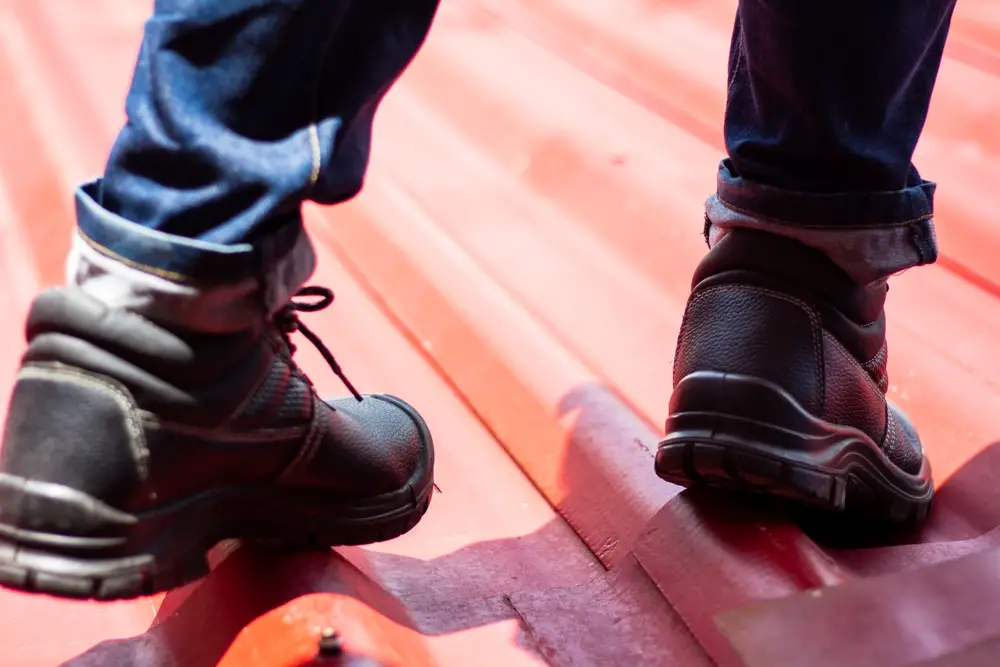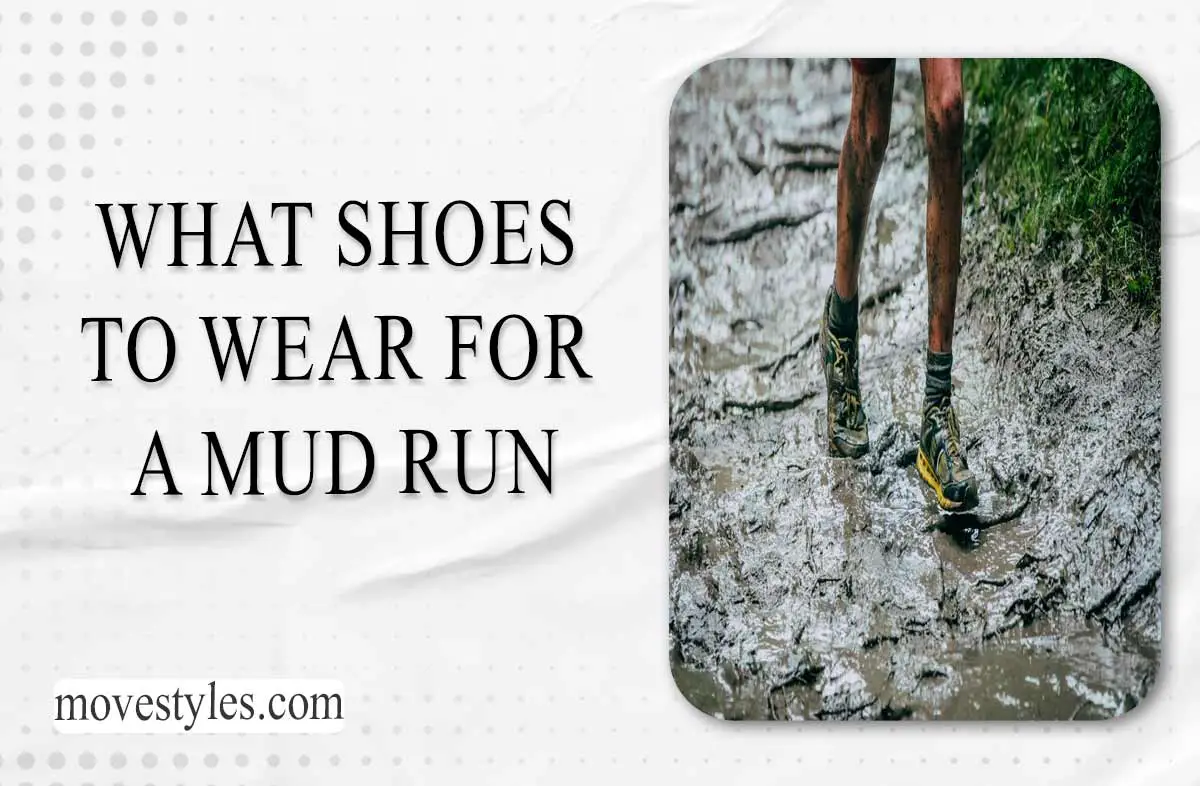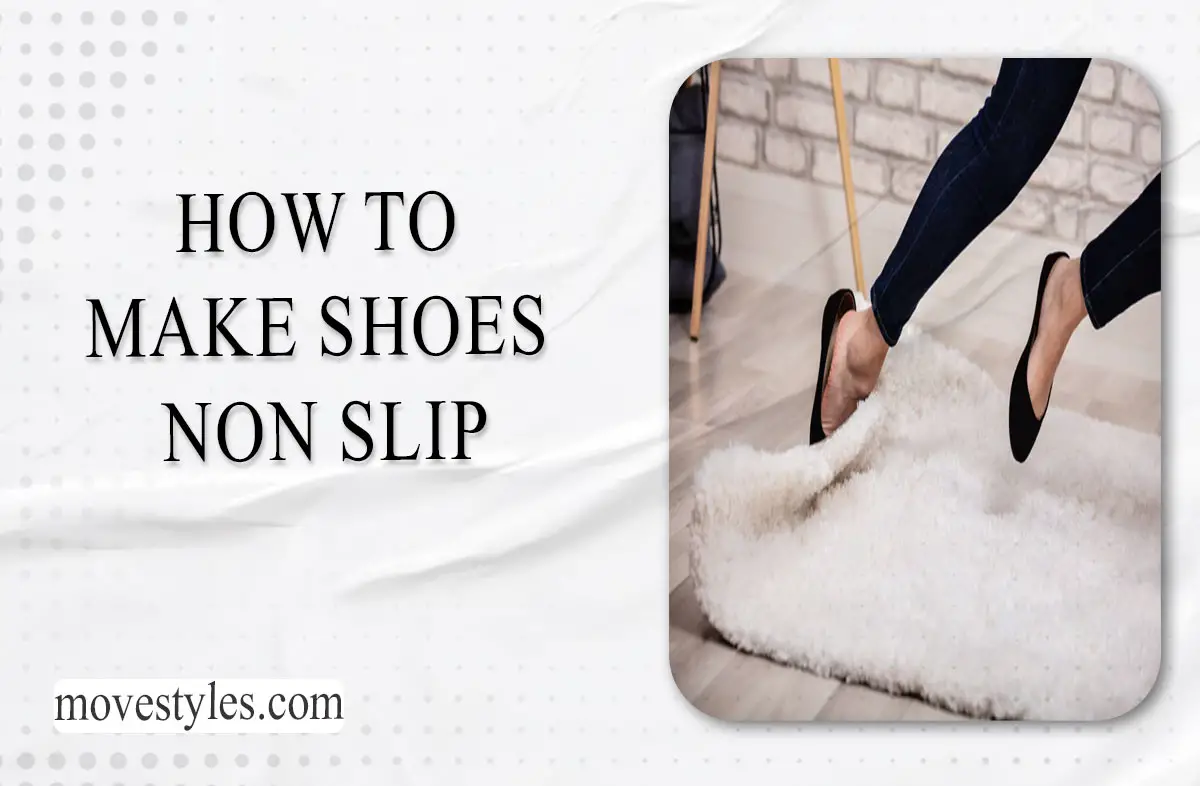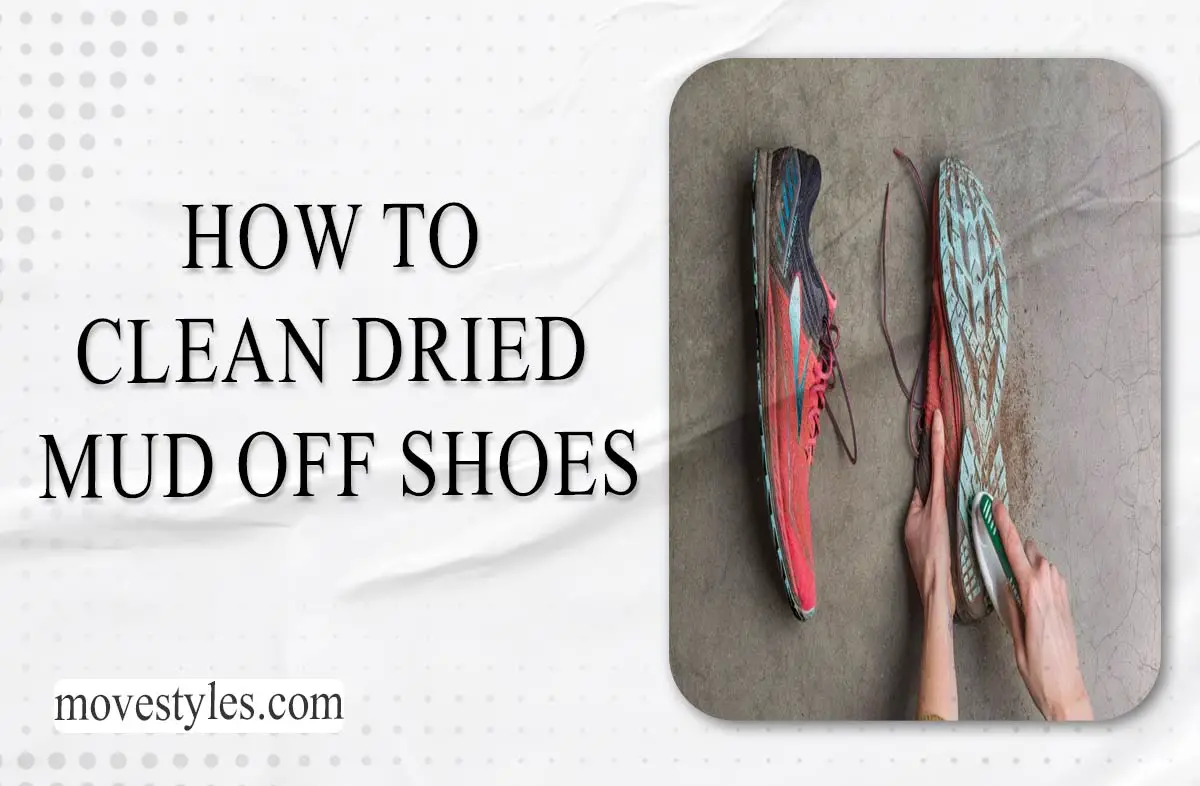Roofing is a physically demanding job that requires workers to climb, stand, and move around on steep and slippery surfaces. To perform this job safely and effectively, roofers need to wear the right shoes.
But with so many options available, it can be challenging to know what kind of shoes roofers wear and which ones are the best for the job. We will explore the different types of roofing shoes and provide tips on how to choose the best shoes for roofing.
Why Wearing the Right Shoes for Roofing is Important
Roofing is a dangerous job, and wearing the right shoes is crucial for safety. Roofers need shoes that provide good traction, stability, and support to prevent slips, falls, and injuries.
The wrong shoes can cause accidents, reduce productivity, and even lead to long-term health problems. Therefore, it’s essential to invest in high-quality roofing shoes that are designed to meet the specific needs of the job.
Types of Roofing Shoes
There are different types of roofing shoes available, including boots, sneakers, and hiking shoes. Each type has its advantages and disadvantages, depending on the type of roofing work being performed.
For example, boots are a popular choice for roofing because they provide good ankle support and protection from debris. Hiking shoes are durable and provide good traction, making them suitable for steep roofs. It’s important to choose the right type of roofing shoes based on the specific needs of the job.
Features to Look for in Roofing Shoes
When choosing roofing shoes, there are several features to look for to ensure safety and comfort. These features include:
- Slip-resistant soles: Roofers need shoes with soles that provide good traction on wet and slippery surfaces.
- Steel toes: Steel-toed shoes provide protection from falling objects and sharp debris.
- Ankle support: Shoes with good ankle support help prevent ankle injuries.
- Cushioned insoles: Cushioned insoles provide comfort and reduce fatigue during long hours of work.
- Breathable materials: Shoes made of breathable materials help keep feet cool and dry in hot weather.
- Durability: Roofing shoes need to be durable and withstand the wear and tear of the job.

Benefits of Skate Shoes for Roofing
Skate shoes may not be the first thing that comes to mind when thinking about roofing shoes, but they offer several benefits that make them a popular choice among roofers. Here are some advantages of using skate shoes for roofing:
- Excellent Traction: Skate shoes are designed with grippy rubber soles that provide excellent traction on various surfaces, including roofs. The flat and sticky outsoles help roofers maintain a secure footing, reducing the risk of slips and falls.
- Lightweight and Flexible: Skate shoes are typically lightweight and flexible, allowing for better agility and ease of movement on the roof. This flexibility is particularly beneficial when navigating tight spaces or performing intricate roofing tasks.
- Comfortable Fit: Skate shoes often feature cushioned insoles and padded collars, providing comfort and support during long hours of work. The snug fit of skate shoes helps prevent blisters and discomfort, allowing roofers to focus on their job without distraction.
- Durable Construction: Skate shoes are built to withstand the rigors of skateboarding, which means they are designed to be durable and long-lasting. This durability translates well to the demands of roofing work, where shoes need to withstand constant wear and tear.
- Stylish and Versatile: Skate shoes come in a wide range of styles and designs, allowing roofers to express their personal style while still prioritizing safety and functionality. This versatility makes skate shoes a popular choice among roofers who want both performance and aesthetics.
Waterproof and Puncture-Proof Roofing Shoes
- It’s important to choose shoes that are comfortable, safe, and suitable for your work environment.
- Look for shoes with slip-resistant soles, steel toes, good ankle support, and cushioned insoles.
- Choose shoes made of durable materials such as leather or rubber, and select brands with a good reputation for reliability.
- Finally, consider investing in a high-quality pair of shoes that will last and protect your feet on the job.
Roofing Shoes vs. Hiking Shoes
| Features | Roofing Shoes | Hiking Shoes |
|---|---|---|
| Traction | Excellent on steep roofs | Versatile for various terrains |
| Safety Features | Slip-resistant soles, steel toes, ankle support | May not have specialized features for roofing work |
| Comfort | Lightweight and flexible, but may not offer the same level of cushioning as hiking shoes | Designed for comfort and support for long hours of walking |
| Durability | Built to withstand the wear and tear of roofing work | May not have the same level of durability as roofing shoes |
| Versatility | Limited versatility outside of roofing work | Suitable for various activities and terrains |
| Waterproofing | May have waterproofing capabilities | May have waterproof and breathable features |
| Heat Resistance | May have heat-resistant materials for metal roofing work | May not have specific features for metal roofing work |
Ultimately, the choice between roofing shoes and hiking shoes will depend on the specific demands of your roofing work, the level of comfort and protection you require, and the versatility you desire.
Check Out: What Shoes To Wear For A Mud Run
Maintaining Safety with Metal Roofing Shoes
Working on metal roofs requires specific safety considerations, and wearing the right shoes is crucial. Here are some tips for maintaining safety with metal roofing shoes:
- Slip-Resistant Soles: Metal roofs can be slippery, especially when wet. Look for roofing shoes with slip-resistant soles that provide excellent traction on metal surfaces, reducing the risk of slips and falls.
- Steel Toes: Metal roofing shoes should have steel toes to protect your feet from falling objects and potential impact. Steel toes provide an extra layer of safety and prevent injuries.
- Ankle Support: Metal roofing work often involves climbing and navigating uneven surfaces. Choose shoes with good ankle support to reduce the risk of ankle injuries and provide stability during movement.
- Heat Resistance: Metal roofs can become extremely hot under the sun. Opt for roofing shoes with heat-resistant materials to protect your feet from burns or discomfort.
By wearing the appropriate metal roofing shoes, roofers can enhance safety, reduce the risk of accidents, and perform their work with confidence and efficiency.
Conclusion
Roofing is a physically demanding job that requires workers to wear the right shoes for safety and comfort. There are different types of roofing shoes available, including boots, sneakers, and hiking shoes. When choosing the best shoes for roofing, consider factors such as slip resistance, steel toes, ankle support, cushioned insoles, durability, and personal style. By investing in high-quality roofing shoes, roofers can perform their job safely and effectively.
Frequently Asked Questions
Are skate shoes suitable for roofing work?
Skate shoes have smooth surfaces and less exterior grip, which can be beneficial for roofers, especially those working on certain types of roofs. However, they may not provide the same level of safety features and durability as specialized roofing shoes.
Do roofing shoes have specific safety features?
Yes, roofing shoes often have specific safety features such as slip-resistant soles, steel toes, and ankle support. These features help prevent slips, falls, and injuries while working on roofs.
Which brands offer the best roofing shoes?
Some popular brands that offer high-quality roofing shoes include Thorogood, Timberland, Merrell, Reebok, and Caterpillar. These brands are known for their top-tier quality and durability.
Are roofing shoes waterproof and puncture-proof?
Roofing shoes can come with waterproofing capabilities to keep feet dry in wet conditions. However, not all roofing shoes are puncture-proof, so it’s important to choose shoes with reinforced soles for added protection against sharp objects
Can hiking shoes be used for roofing work?
While hiking shoes may provide comfort and support for long hours of walking, they may not have the specialized features required for roofing work, such as specific traction patterns or steel toes
![What Kind of Shoes Do Roofers Wear - [Guidelines]](/uploads/what-kind-of-shoes-do-roofers-wear.jpg)

![Can I Wear High Heels After Bunion Surgery? [Health Care]](/uploads/can-i-wear-high-heels-after-bunion-surgery.jpg)




![Where Are on Cloud Shoes Made? [Movestyles]](/uploads/where-are-on-cloud-shoes-made.jpg)